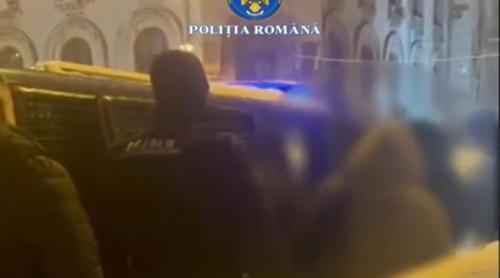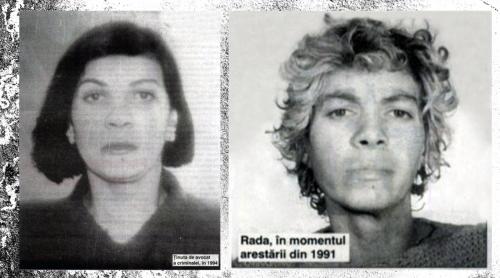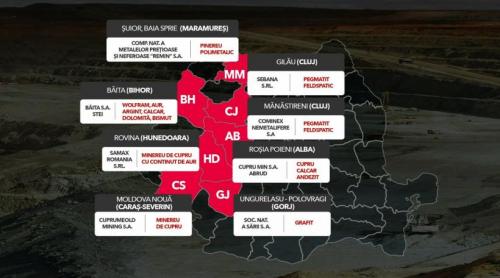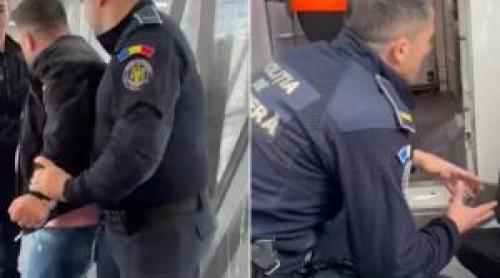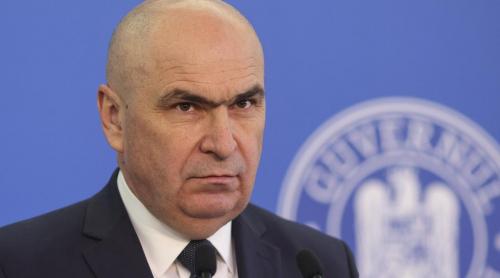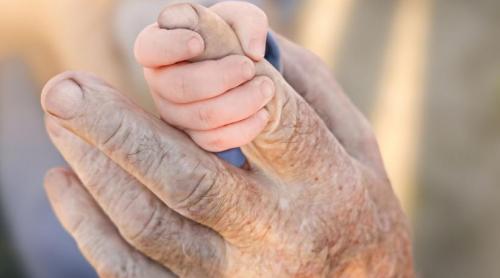
Many Romanians donât want any anticipated elections, donât agree with the presence of the Romanian military troops in Iraq and believe that the GRP (Great Romania Party) leader, C. V. Tudor, did a good thing when he retired from the partyâs leading board, says a CURS poll. The same poll shows that the Alliance is still in the top of the electorateâs preferences, but also an increase in the number of the undecided or not-wanting-to-vote people.
|
|
|
 |
Do you agree with the Romanian soldiersâ presence in Iraq? |
SUPPORT. The research also analyzed the opinion on the anticipated elections of the supporters of different parties. From this point of view, the J.T. (Justice and Truth) Alliance and SDP (Social Democartic Party) supporters prefer the most the idea of the anticipated elections. This way, 48% of the J. T. Alliance supporters agreed with the anticipated elections, while 43% rejected this possibility. The idea of the before-the-term elections was also supported by 50% of the SDP fans, compared to the 40% of the ones not wanting them. DUHR (the Democratic Union of the Hungarians in Romania) have rejected the idea of the anticipated elections, 60% of them having this opinion against the only 35% who supported the anticipated electionsâ organization. The undecided also are against, 65% not supporting a voting before the term.
 |
Do you agree with having Parliamentary elections before 2008? |
 |
If you would have to vote the Parliament tomorrow, what party or political formation would you vote for?
|
VOTING INTENTION. For the question "if you would have to vote the Parliamentâs election tomorrow, what party or political formation would you vote for?", 48% of the responders have indicated the J. T. Alliance, 30% - SDP, 8% - GRPP, 5% - DUHR, 3% - HPR (the Humanist Party in Romania), 2% - CDPP (the Christian-Democratic Peopleâs Party), 4% other parties. There must be said that 39% of the interviewees are undecided or didnât answer. According to the poll, among the voters of the Alliance the opinions are equally shared between NLP (National Liberal Party) and DP (Democratic Party), with 43% each. In the same time, 14% of the responders showed they donât sympathize one of the parties especially.
PEOPLEâS PARTY. The poll also analyzed the electorateâs opinion on voting for a peopleâs party for the parliamentary elections, taking into account the recent tendencies towards the formation of such a party in Romania. The dominant answer for this question was "I donât know, Iâm not answering", 30% of the examined people being in this situation, while 27% expressed their "very little" availability towards voting a peopleâs party, and 21% would be "little" available. In the same time, 22% of the interviewees said they would vote for a peopleâs party, 7% of them being highly opened to this and 15% of them are just opened. These votes, for a peopleâs party, would mainly come from the supporters of the Alliance, 30%, and from the ones of SDP, 24%. An important support, also 30%, would come for the peopleâs party from the undecided people as well, and the rest of the percentages would come from the electorates of GRPP (7%), CDPP (4%), from the DUHR (3%) and from the HPR (2%).
VADIMâS RETIREMENT. Corneliu Vadim Tudorâs retirement as the GRP president, and becoming honorific president of the same party, is known by 80% of the interviewees, according to the poll. 55% of them believe that this was a good decision from C. V. Tudor, and 14% donât agree with it. 31% donât know or donât answer. Nevertheless, the idea of Vadim retiring as the partyâs president and becoming the partyâs honorific party is also agreed by most of the voters of the other parties.
PRIORITIES. The most important problem that should be taken care of now in Romania is the eradication of the corruption, say 21% of the interviewees. The next problems that need immediate solving is, according to 19% of the responders, are the living standard and the work places, followed by the pensioners problem, emphasized by 9% of the interviewees.
THE SPANISH PROBLEM. A great note among the interviewed people has been the problem of the coaches with Romanians, which were turned at the frontier with Spain and sent back to Romania, 93% of the responders saying they knew about these facts. Most of the Romanians, 47%, believe that the decision of the Spanish authorities "has been justified". 40% consider it unjust, and 13% donât know or donât answer.
MILITARY PRESENCE IN IRAQ. The poll analyzed the perception level of the public opinion on the Romanian soldiersâ presence in Iraq. For this aim, many of the interviewees, 55%, have stated they didnât agree with it, and only 36% of the responders agreed with it. The same disagreement has been mainly expressed when this question was asked to the partiesâ supporters.
SAMPLE. The poll has been made by CURS on 1,100 people, between the 21st and the 26th of March, the error margin being plus/minus 3%. The research is of omnibus kind, this meaning a poll usually made at the request of more clients, explained the CURS director, Sebastian Lazaroiu.
|
PENALTY
|
|
Sebastian Lazaroiu, the CURS director, explained that, even though the pollâs results show a score of 48% of the voting intention for the J. T. Alliance, this result cannot be taken into consideration as if it were directly related to the possible score obtained by the Alliance in the case of the anticipated elections, there being a high possibility for the electorate to fine it. "The people are so under the electionsâ empire, such that these voting intentions should be very volatile. It is a very hard thing to say that, if the ones in Power would provoke the anticipated elections, the Alliance would hardly obtain 48%. If the people donât want anticipated elections and someone provokes them, the people might turn against that person and vote for a penalty", Lazaroiu warned.
|
|
PREPARED
|
|
ADP president, Cristian Parvulescu, appreciated that the pollâs results show that the Romanians are much more informed on the European themes than they were last year. "The Romanians understand the criteria of the European integration from the political point of view as well, not only from the practical point of view. I might say the Romanians are more prepared for the European integration than they were last year", Parvulescu emphasized.
|
|
LOCALS
|
|
Cristian Parvulescu also estimated the possible voting attendance for the local elections on Sunday, saying that this would possibly be around 30%. "Taken the assumption that, in 1998, for the partial elections, the voting attendance was 36%, when high representatives of the parties were attending, and in 2005 there werenât so many VIPs present, we believe that the voting attendance would be around 30%", the ADP president showed.
|
Translated By SORIN BALAN
Citește pe Antena3.ro



